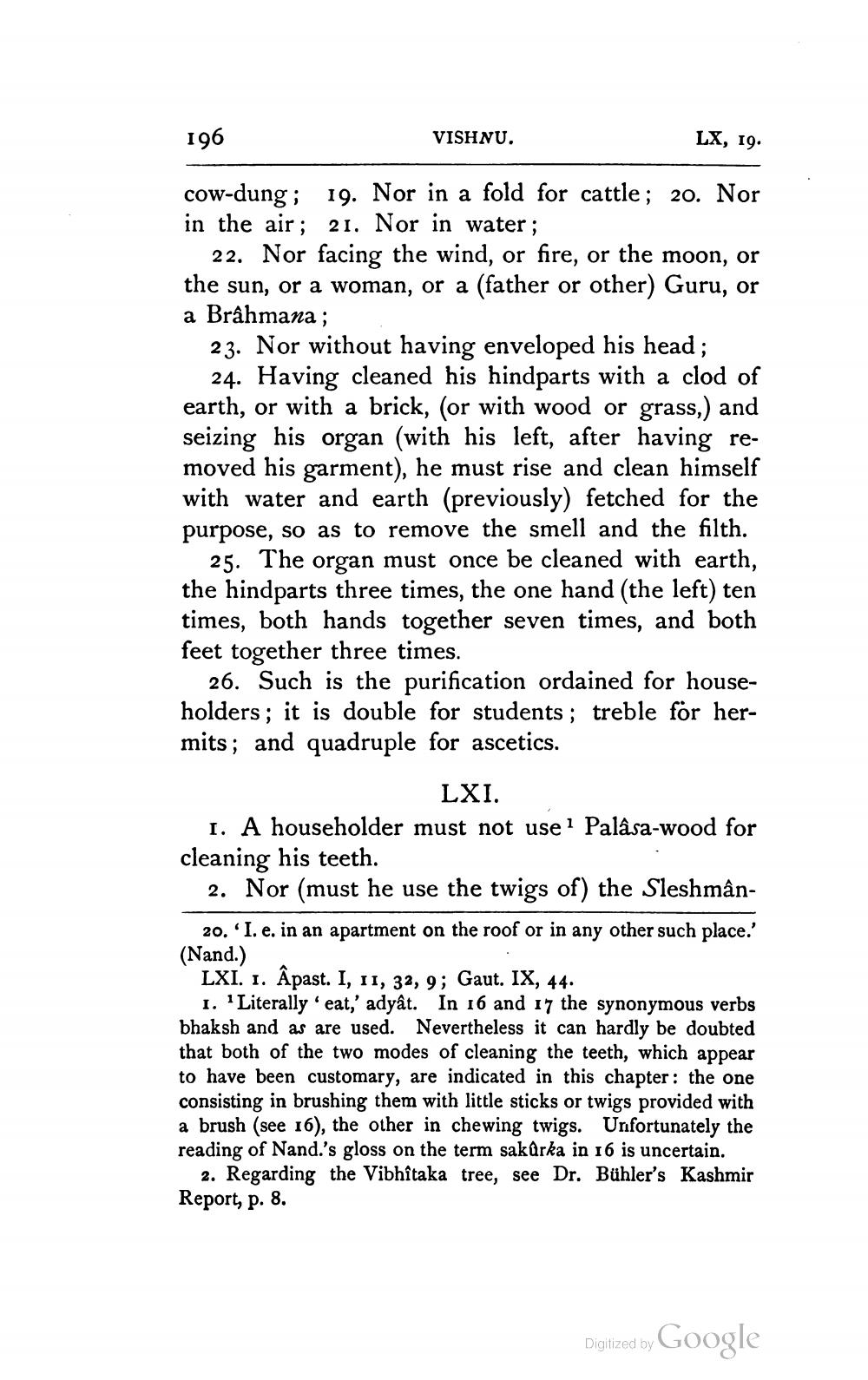________________
196
VISHNU.
LX, 19.
cow-dung; 19. Nor in a fold for cattle; 20. Nor in the air; 21. Nor in water;
22. Nor facing the wind, or fire, or the moon, or the sun, or a woman, or a (father or other) Guru, or a Brâhmana;
23. Nor without having enveloped his head;
24. Having cleaned his hindparts with a clod of earth, or with a brick, (or with wood or grass,) and seizing his organ (with his left, after having removed his garment), he must rise and clean himself with water and earth (previously) fetched for the purpose, so as to remove the smell and the filth.
25. The organ must once be cleaned with earth, the hindparts three times, the one hand (the left) ten times, both hands together seven times, and both feet together three times.
26. Such is the purification ordained for householders; it is double for students ; treble for hermits; and quadruple for ascetics.
LXI. 1. A householder must not use · Palâsa-wood for cleaning his teeth.
2. Nor (must he use the twigs of) the Sleshmân
20. ‘I. e. in an apartment on the roof or in any other such place.' (Nand.)
LXI. 1. Âpast. I, 11, 32, 9; Gaut. IX, 44.
I. Literally eat,' adyât. In 16 and 17 the synonymous verbs bhaksh and as are used. Nevertheless it can hardly be doubted that both of the two modes of cleaning the teeth, which appear to have been customary, are indicated in this chapter: the one consisting in brushing them with little sticks or twigs provided with a brush (see 16), the other in chewing twigs. Unfortunately the reading of Nand.'s gloss on the term sakûrka in 16 is uncertain.
2. Regarding the Vibhitaka tree, see Dr. Bühler's Kashmir Report, p. 8.
Digitized by
Digitized by Google




